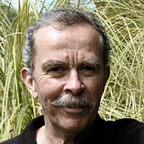How to be a Whisky Expert in Three Minutes
First, we are talking about Scotch or malt whisky without an “e”. Whiskey with an “e” is an umbrella word, generally reserved for whiskey from Tennessee and bourbon is reserved for whiskey from Kentucky and Virginia. Americans and the Irish spell it “whiskey,” but much of the rest of the world spells it the way we do here — whisky.
To be an expert keep two things in mind. First, no two whiskies taste the same. Secondly, most people can’t tell the difference. So, if you keep the second point in mind while talking about the first point, you are an instant expert and won’t be challenged.
Of course, you’ll need to describe the whisky. You can use these fruits to describe the initial taste and aftertaste — apples, plums, figs, pears, but not watermelon or kumquat. You can say oak, but not palm tree. You can say peaty but not swampy.
You can “cut” any whisky with a splash of water, but not Dr. Pepper. Best way to “cut” it? Dilute it, with a splash of water or a little more whisky. You can use water from New York City, but not Flint, Michigan. You can age it in sherry casks, or new oak… but not an oil tank or milk cart. Hay works but not mowed grass.
Pointing to a bottle in a bar or store never fails. Mispronunciation may get you some moon shine or white whisky. Fruity is a good broad term word to use when describing whisky but save licorice for any French pastis. There are some good French whiskies, with notes of crème brûlée and burnt caramel, but some of them are tricky to pronounce as well. C’est la vie.
There are some great whiskies with easy names — Spring Bank, Old Putney, Highland Park, and The Aaron Malt, but the two most popular Scotch whiskies representing about 50 percent of the world market, are a challenge of their own — Glenfiddich and Glenlivet. As I talk about them, one has stags on the label, so you know that one is the “fiddich” with the two d’s representing the stags. Glen means valley so they are both from valleys. Fiddich means “valley of the deer.”
Don’t try to pronounce them on your own. Many of them have Celtic roots and it is surprising how many vowels are silent. Try Bruichladdich on your own. For the lead image above, the best most Americans can do is “Brook-laddie.” For the Scottish there is a tongue rolling broo-ch-k-laddie. I advise you lean toward “brooth-ich-laddy. Getting the “ich” in will confirm your expertise. Lagavulin is pronounced laa·guh·voo·luhn and sounds this way.
My wife has always talked about her Chicago friends, especially about Steven Glen. When Steven Glen came east to visit us in our country home in Pennsylvania, I was the first to see the arrival in the driveway. I didn’t go out to introduce myself. Instead, I went back in the house and said to my wife, “There are two of them.”
All along she had been talking about Steve and Glen. The two of them turned out to be great friends of mine as well. Glen and I could finish a bottle of whisky, usually a 10-year-old Ardbeg, in one evening. The best value and taste out there, in my judgment.
One more reminder: Don’t drink whisky out of a can. If you drink champagne or cognac out of a can, well then, have at it
